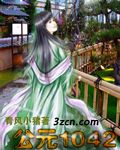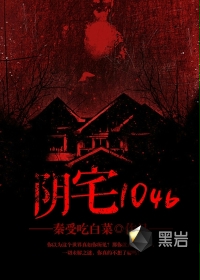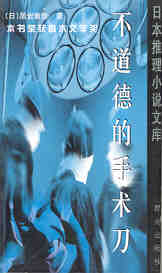04道德经英译本85种-第4部分
按键盘上方向键 ← 或 → 可快速上下翻页,按键盘上的 Enter 键可回到本书目录页,按键盘上方向键 ↑ 可回到本页顶部!
————未阅读完?加入书签已便下次继续阅读!
68
The accomplished person is not aggressive。 The good soldier is not hot tempered。
The best conqueror does not engage the enemy。 The most effective leader takes the lowest place。
This is called the Te of not contending。 This is called the power of the leader。 This is called matching Heaven's ancient ideal。
69
There is a saying in the army: I do not presume to be the master; But become the guest。 I do not dare advance an inch; but retreat a foot。
This is called moving without moving; rolling up sleeves without showing your arms; Repelling without opposing; Wielding without a weapon。
There is no disaster greater than Contempt for the enemy。
Contempt for the enemy … what a treasure is lost! Therefore; When the fighting gets hot; Those who grieve will conquer。
70
My words are very easy to understand; Very easy to practice。 No one under heaven can understand them; No one can practice them。
Words have ancestors; Deeds have masters。 If people don't understand this; They don't understand me。 Few understand me; And that is my value。
Therefore the Sage wears rough clothing And carries Jade inside。
71
Know not…knowing: supreme。 Not know knowing: faulty
Only faulting faults is faultless。
The Sage is faultless
By faulting faults;
And so is without fault。
72
When people are not in awe of power; Power becomes great。
Do not intrude into their homes; Do not make their lives weary。 If you do not weary them; They will not becoem weary of you。
Therefore the Sage Has self…knowledge without self…display; Self…love without personal pride; Rejects one; accepts the other。
73
Courage to dare kills; Courage not to dare saves。 One brings profit; one brings harm。
Of these two; one is good; and one is harmful。 Some are not favored by heaven。 Who knows why? Even the wise consider it a difficult question。
Heaven hates what it hates … Who knows why! Even the Sage finds it difficult。 Heaven's Tao does not contend But prevails; Does not speak; But responds; Is not summoned; But arrives; Is utterly still; But plans all actions。
Heaven's net is wide; wide; Loose … But nothing slips through。
74
If people do not fear death; How dare you threaten them with death?
But if people with a normal fear of death Are about to do something vicious; And I could seize and execute them; Who would dare?
There is always an official executioner。 Trying to take the executioner's place; Is like trying to replace a master woodworker … Few would not slice their own hands。
75
People are hungry。 When rulers tax grain People are hungry。
People are rebellious。 When rulers are active People are rebellious。
People ignore death。 When searching only for life's bounty People ignore death。 Only those who do not strive after life Truly respect life。
76
Humans are born soft and weak。 They die stiff and strong。
The ten thousand plants and trees Are born soft tender; And die withered and sere。
The stiff and strong Are Death's companions The soft and weak Are Life's companions。
Therefore the strongest armies do not conquer; The greatest trees are cut down。
The strong and great sink down。 The soft and weak rise up。
77
Heaven's Tao Is a stretched bow; Pulling down on the top Pulling up on the bottom。
If it's too much; cut。 If it's not enough; Add on to it: Heaven's Tao。
The Human Route Is not like this; Depriving the poor; Offering to the rich。 Who has a surplus And still offers it to the world? Only those with Tao。
Therefore the Sage Acts and expects nothing; Accomplishes and does not linger; Has no desire to seem worthy。
78
Nothing in the world is soft and weak as water。 But when attacking the hard and strong Nothing can conquer so easily。
Weak overcomes strong; soft overcomes hard。 Everyone knows this; no one attains it。
Therefore the Sage says: Accept a country's filth And become master of its sacred soil。 Accepts country's ill fortune And become king under heaven。 True words resemble their opposites。
79
Appears great hatred sand hatred will remain。 How can this be good?
Therefore the Sage Holds the tally But does not judge people。
Those who have Te Control the tally。 Those who lack Te Collect their due。
Heaven has no favourites But endures in good people。
80
Small country; few people … Hundreds of devices; But none are used。 People ponder on death And don't travel far。
They have carriages and boats; But no one goes on board; Weapons and armour; But no one brandishes them。
They use knotted cords for counting。 Sweet is their food; Beautiful their clothes; Peaceful their homes; Delightful their customs。
Neighboring countries are so close You can hear their chickens and dogs。 But people grow old and die Without needing to come and go。
81
Sincere words and not pretty。 Pretty words are not sincere。
Good people do not quarrel。 Quarrelsome people are not good。
The wise are not learned。 The learned are not wise。
The Sage is not acquisitive … Has enough By doing for others; Has even more By giving to others。
Heaven's Tao Benefits and does not harm。 The Sage's Tao Acts and does not contend。
English_Allchin_TTK
Das Tao Te King von Lao Tse
English interpretation by
Douglas Allchin; 2002
Vorwort/Foreword
Who would follow the Way
must go beyond words。
With such bold words; who would dare to introduce yet another version of the Tao Te Ching (Dao De Jing; or The Classics of Integrity and the Way)? If words are inadequate; how can one regard favorably yet one more set of an already much translated text? Many things make this version unique。
First; while many translations of this Chinese classic exist; none (to my mind) capture the cadence and sound of poetry。 While I regard many translations as faithful in meaning; their convoluted rhythm bears witness to an effort to transcend languages。 The Classics originated in an oral tradition。 It used rhyme throughout。 In that spirit; this version is meant to be spoken; as much as read。 Meter is central。 Sound is a touchstone。
Second; the ancient Chinese text is filled with references to ancient China。 We should expect no less。 Yet the old sayings; assumptions about rituals and feudal society; and jabs at the Confucians lose their potency in a dramatically different culture。 Any student of the dao will readily acknowledge; however; the text's enduring relevance。 Thus; I have rendered the Classics for a western audience in the 21st century; while still respecting its ancient Chinese origin。 It aims to evoke a daoist sense of the perpetual。
Finally; I was dissatisfied with the balance of image; poetry and meaning in existing versions。 Multiple meanings; word play and implicit connotations challenge any translator。 At the same time; for poetry; one must evoke images and create music。 Many translations of the Dao De Jing succeed by focusing only along some of these dimensions。 Thus; one may respect the erudition of such translators as D。C。 Lau or James Legge。 Likewise; one may admire the elegant simplicity; echoed in photographic images; of Gia…Fu Feng and Jane English。 One may be equally impressed; for yet other reasons; with the free and often playful interpretations of Witter Bynner or Ron Hogan (aka Jesse Garon)。 None; however梩o my mind梤enders the meaning both fully and poetically。
In addition; I have paralleled the text with images。 They are aesthetic and meditative complements。 Photographs are special images。 Ostensibly they reproduce visual reality。 Yet each frames the world uniquely。 They focus one's perception。 Photographs are ultimately about ways of seeing。 These images are; in the daoist spirit; about oneness with nature。
Those interested in my 〃method〃 and guiding themes may read further here。
A primary aim of my work has been to recapture rhythm。 I have relied substantially on the standard two beat iamb; which lends a sense of simple regular rhythm。 Students of the dao might imagine the alternating of yin and yang as one breathes and as the heart beats。
Much of the original was rhymed。 The pairing of lines; often with contrasting or coupled thoughts; is evident in many translations。 It would have been a powerful mnemonic in an oral tradition。 Yet sound has strong emotional resonance; as well。 I can lay no claim to mastering the rhymed couplet (would that Alexander Pope had set himself to this verse!)。 Still; I have tried to capture parallel verses in parallel rhythms; and to underscore their pairings。 I have sought rhyme without straining the fundamental structure and meaning。 Assonance and alliteration have also been important tools。
Economy has also been a benchmark。 Indeed; through its own economy of language; the original text evokes appreciation of economy in living; as well。 Many translations seem to sacrifice this feature in order to articulate meaning more fully。 I hope to restore freshness and vividness through streamlined text。 To convey meaning I rely on appropriate words; although some are themselves not so simple。 The original was allegedly 5;000 characters。 I weigh in at just under 5800 words。
Another vital element of the original was word play。 Commentators frequently note the puns and subtle meanings implied by the homophonic Chinese characters。 I have aimed for the same effect without bulky footnotes。
Interpretation is essential。 A modern reader can be lost (or even alienated) by references to feudal lords and ancient Chinese customs; which would have been familiar long ago。 These I often generalize。 Similarly; for 〃old sayings;〃 I frequently draw on maxims from western culture to evoke a sense of the familiar。 At the same time; this is not a free interpretation。 I endeavor to remain faithful to the original meaning; images and metaphors。
Accordingly; I call this a rendition; not a translation。 As much as I am a student of the dao; I am not a scholar of ancient Chinese language。 Thus; I am indebted to all the scholars who have translate





